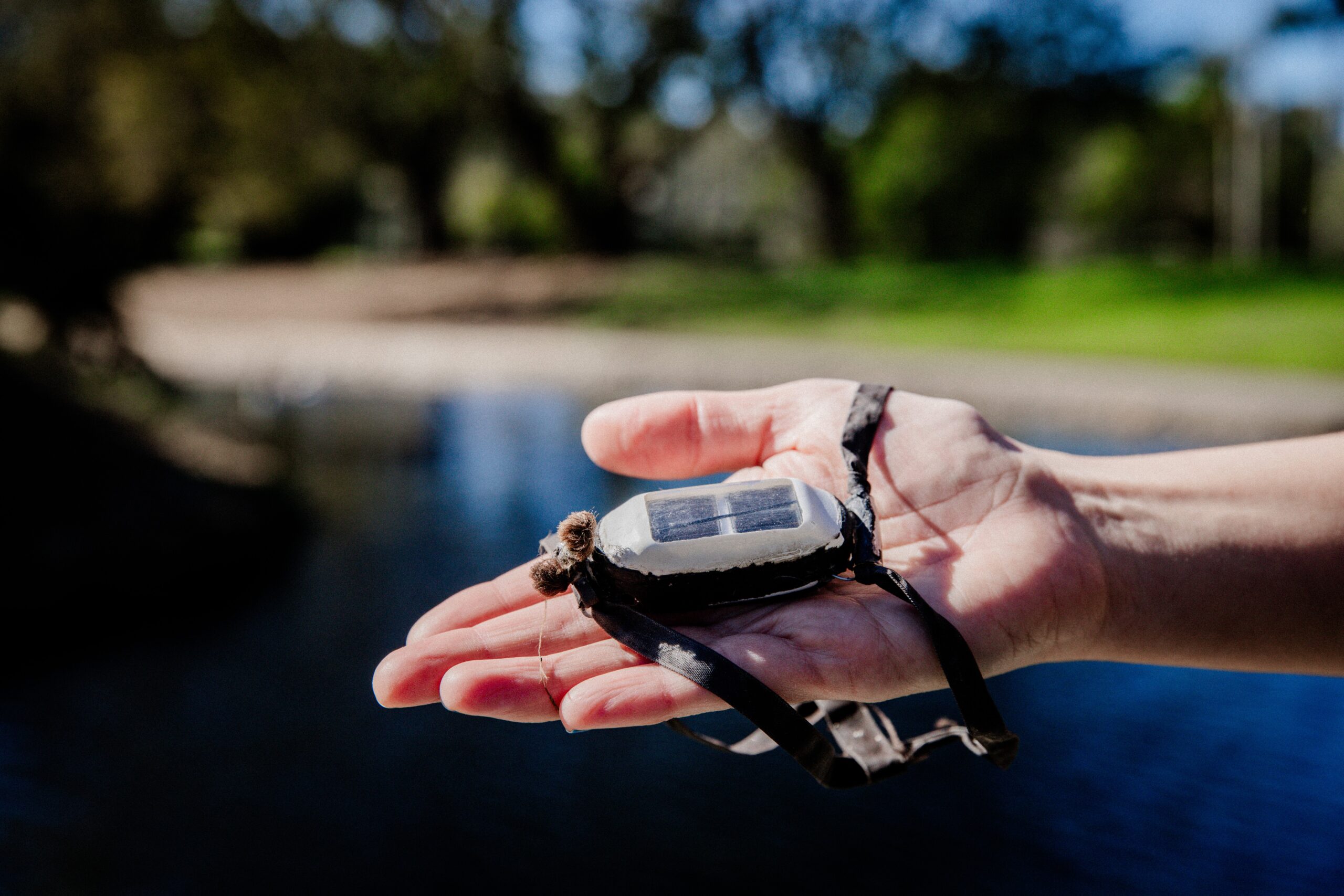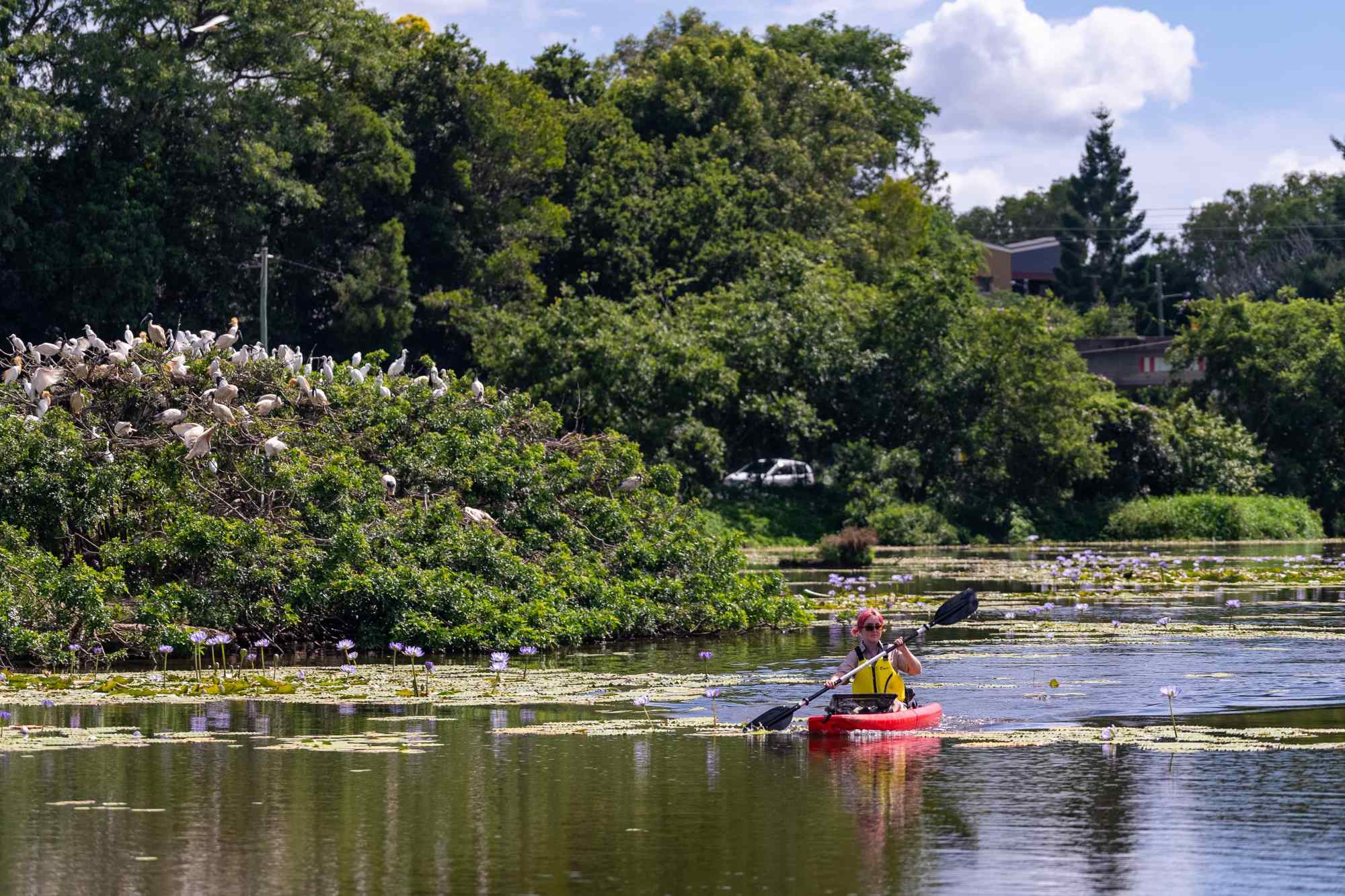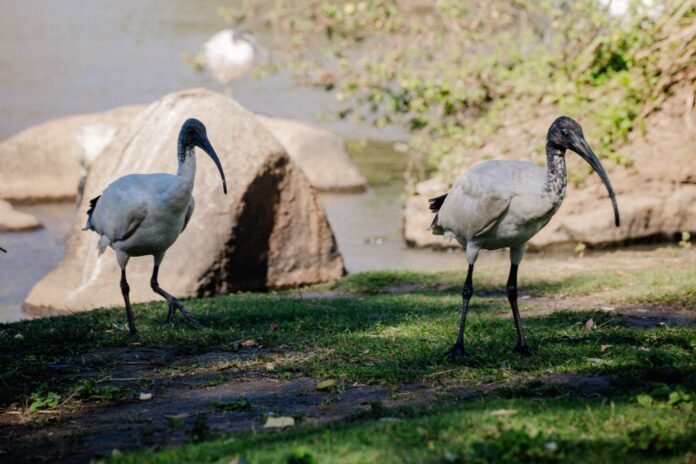University of the Sunshine Coast researchers have identified the happy haunts and habits of the white ibis, with a view to deterring them from areas where they are not wanted.
Not surprisingly, the new UniSC study, published in Urban Ecosystem, found that the bird fondly known as the “bin chicken” liked to hang around waste facilities.
However, it also found that although ibis liked to scavenge at waste facilities, they did not like to nest there, instead preferring to roost and breed nearby.
The researchers, backed by citizen scientists using the Big City Bird app, monitored 26 locations and more than 150 birds in the Moreton Bay region using trackers and solar backpacks in the study, funded by the Moreton Bay Regional Council.
Many of the birds were found to have routines, such as one that flew like clockwork from Centenary Lakes to scavenge at a Caboolture shopping centre every morning.
Ibis and nest numbers were highest within 10km of waste facilities and increased close to residential and industrial estates but decreased in accordance with the distance these were from rubbish tips.

Dr Dominque Potvin, who co-authored the paper, said proximity to waste sites was found to be the primary driver behind where the ibis established colonies.
“This highlights the need to focus on both foraging and nesting/roosting sites, and minimising the proximity between them, rather than the current preferred form of solely managing nesting colonies through measures that include egg destruction,” Dr Potvin said.
The study found the ideal nesting place of the ibis was an island with high tree density but few species, with a fondness for melaleucas and eucalypts, and that they preferred roosts under 10m high.
Lead author Caitlin Willis said reducing the amount and accessibility of available onsite refuse and careful planting in parklands and urban landscapes near foraging grounds might deter ibis.
“To deter large colonies, the solution could be to make greens paces less attractive, with less desirable space, by planting a diverse range of taller trees in low densities within parklands and urban areas,” she said.

The researchers suggest there should be a rethink of an urban planning trends towards development near wetlands, and instead wetlands should be used to entice nesting colonies away from urban areas.
Paper co-author Associate Professor Ben Gilby said creating or managing wetlands to create suitable ibis nesting conditions could buffer the birds from humans and protect them from predators.
“As their native inland habitats have declined over the past three decades, they’ve established large permanent and seasonal nesting colonies in urban coastal areas, sometimes numbering hundreds of nests and thousands of individuals,” Prof Gilby said.
“As well as complaints about their noise and odour, and even stealing from humans, nesting colonies can degrade habitats, smother vegetation, cause erosion, pollute waterways and even compete with native species for space.
“Few management interventions have been successful and that’s why this research project to better understand the conditions driving ibis habitat selection is so important.”
Like stories that inform, connect and celebrate the Sunshine Coast? So do we. Join an independent local news revolution by subscribing to our FREE daily news feed at the bottom of this article.





